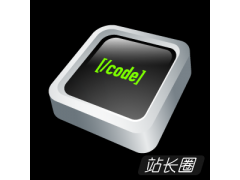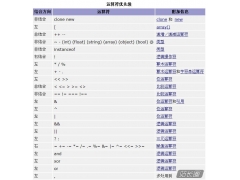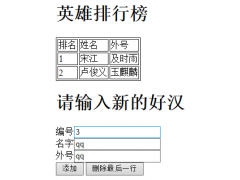NodeJS url验证(url-valid)的使用方法
2013-11-18 14:00 来源: 站长圈 点击:
Javascript做url检验,通常是使用正则表达式来判定,其格式是否正确,例如:
复制代码 代码如下:
/^https?:\/\//.test(url);
当然还有更好的检测方法比如基于RFC 3986, RFC 3966, RFC 4694, RFC 4759, RFC 4904等标准的进行验证的valid-url库。
不过个根据格式进行验证当然不能确定该url是否存在啦,所以就有了url-valid,我们基于HTTP请求进行验证。
接口设计
实际上我们只需要一个函数传入一个url地址,并回调返回该链接是否可用。
但请求容易产生未知错误,所以我们在回调函数传入一个error参数,如果不为空,则有错误产生。
我们可能还希望能够得到网页的相关数据,未来用在页面的信息提取上。
尽可能链式操作吧。
所以最后使用上大概是这样的:
复制代码 代码如下:
valid(url).on('check', function (err, status) {if (err) throw err;status ?console.log('url是可用的') :console.log('url是不可用的');}).on('data', function (err, data) {console.log(data);}).on('end', function (err, data) {console.log('请求结束');})
HTTP GET 还是 HTTP HEAD
本来我们想利用HTTP HEAD请求来实现的,因为HEAD请求只会返回头信息,这可以减少请求时间,但是HEAD请求,不一定所有链接都会支持。
所以最后我们使用HTTP GET方式,在得到正确的statusCode后立刻abort掉请求。
处理301-303
因为301到303都是重定向状态所以,我们需要继续检查对应Location是否依然存在。
利用process.nextTick异步执行
为了在注册监听后,再执行代码,我们使用process.nextTick来一步操作。
实现
复制代码 代码如下:
/*!* valid* MIT Licensed*/module.exports = (function () {'use strict';var http = require('http'), https = require('https'), EventEmitter = require('events').EventEmitter, URL = require('url'), urlReg = /^(https?):\/\//;/*** Valid* @class*/function Valid(url, callback) {var that = this;this.url = url;this.emitter = new EventEmitter();process.nextTick(function () {that.get(url);});this.fetch = false;callback && this.emitter.on('check', callback);}Valid.prototype = {constructor: Valid,/*** get* @param {String} url*/get: function (url) {var match = url.match(urlReg), that = this;if (match) {var httpLib = (match[1].toLowerCase() === 'http') ? http : https, opts = URL.parse(url), req;opts.agent = false;opts.method = 'GET';req = httpLib.request(opts, function (res) {var statusCode = res.statusCode;if (statusCode === 200) {that.emitter.emit('check', null, true);that.fetch ?(res.on('data', function (data) {that.emitter.emit('data', null, data);}) && res.on('end', function () {that.emitter.emit('end');})) :(req.abort() || that.emitter.emit('end'));} else if (300 < statusCode && statusCode < 304) {req.abort();var emitter = that.emitter, valid = one(URL.resolve(url, res.headers.location), function (err, valid) {emitter.emit('check', err, valid);});that.fetch && valid.on('data', function (err, data) {emitter.emit('data', err, data);});valid.on('error', function (err) {that.emitter.emit('error', err);});valid.on('end', function () {that.emitter.emit('end');});} else {that.emitter.emit('check', null, false);}res.on('error', function (err) {req.abort();that.emitter.emit('data', err);});});req.on('error', function (err) {req.abort();return that.emitter.emit('check', null, false);});req.end();} else {return that.emitter.emit('check', null, false);}},/*** on* @param {Stirng} event* @param {Function} callback*/on: function (event, callback) {(event === 'data') && (this.fetch = true);this.emitter.on(event, callback);return this;},/*** destroy*/destroy: function () {this.emitter.removeAllListeners();this.url = undefined;this.emitter = null;this.fetch = undefined;},/*** removeAllListeners* @param*/removeAllListeners: function (event) {event ?this.emitter.removeAllListeners(event) :this.emitter.removeAllListeners();return this;},/*** listeners* @param*/listeners: function (event) {if (event) {return this.emitter.listeners(event);} else {var res = [], that = this, _push = Array.prototype.push;Object.keys(this.emitter._events).forEach(function (key) {_push.apply(res, that.emitter.listeners(key));});return res;}}}/*** one* @param {String} url* @param {Function} callback* @return {Valid}*/function one(url, callback) {return (new Valid(url, callback));}one.one = one;return one;})();





